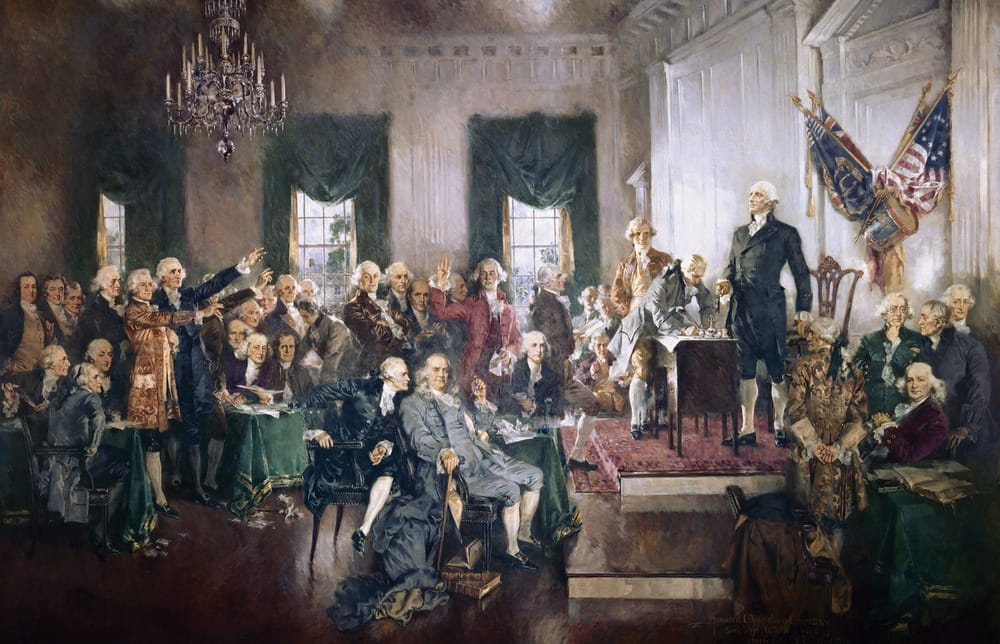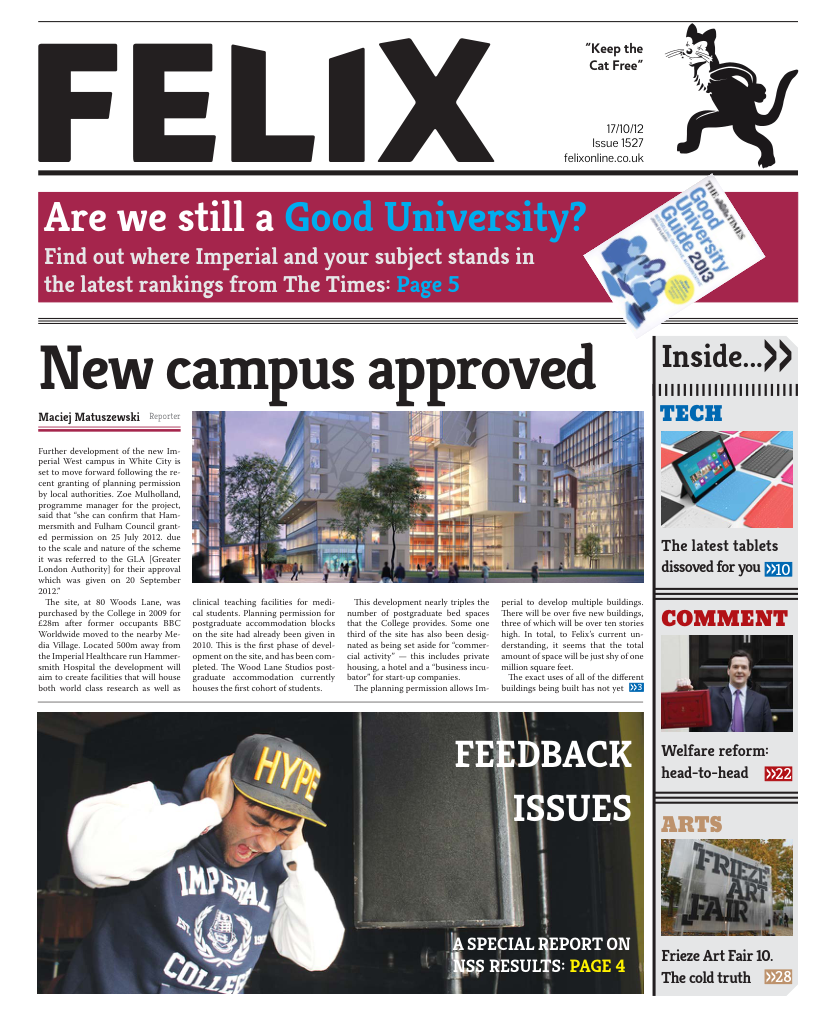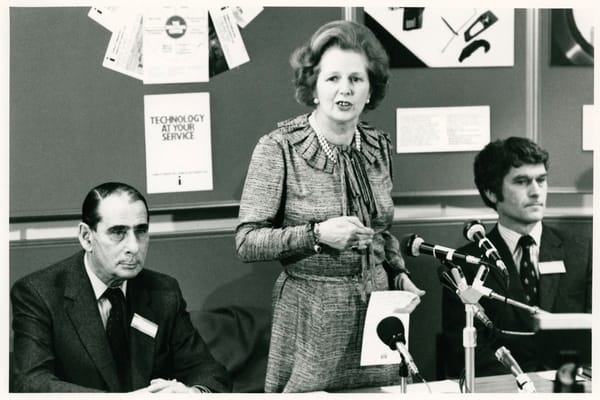Changing the rules. Why bother?
Paul Beaumont makes the case for altering the Union Constituion

I completely accept that few will care. And, I completely accept, that, at the minute, the changes will affect very few people. Changing the Union’s Constitution is important though – and, as well as explaining why I want to do it, I’ll try and explain what needs changing, a little briefer than the four thousand word ‘guide to the twenty-thousand-word constitution’ I’m proposing.
Most of the changes proposed focus on how the Union operates structurally at the top: so few people will even realise there’s been a change, unless you get disciplined, sit on the Union Council or are a sabbatical officer. So what’s the point of changing it then if it won’t affect anything practical? The Union has to register as a Charity, following the Charities Act 2006 which removes our exempt status. Not registering, and losing our charity status would mean we have to pay corporation tax. Inevitably to cover the cost of running the Union if we had to pay out more (on taxes), we’d have to find more income, and the only place realistically to find more income would be by rising bar prices. Remember that the commercial income and the College subvention are the only two things that make the Union money. Everything else costs: running the representation system costs; running a Welfare Advice service costs; subsidising Clubs & Societies costs; cleaning and maintaining the buildings cost. We have to make money somewhere. So let’s register and keep the amount of money we need to raise to keep operating at a minimum.
Registering as a Charity will mean that our constitution is locked down considerably more tightly than it has been in previous years: we’ll now need the Charity Commission to approve any changes we make to our Constitution too, not just the College. So now – just before we register – is the perfect time to reform the governance of the Union. Over the last few years, we’ve all witnessed a failing of governance within the Union: substantial financial losses in both 2010 and 2011; the Summer Ball 2011 (I’ll say no more); delays to releasing elections results due to bureaucracy – causing people to lose faith in the system. It needs reform. Not only does it need reform – it needs it now, so I can then concentrate on things that will have a more direct effect on students throughout the year, for instance writing more responses to government proposals to the Higher Education sector that have been submitted already!
To allay fears that these proposals are going to be anything like those that were suggested at the end of last year, they’re not. We’re going to keep the Deputy President (Finance & Services), and we’re going to keep regular student involvement in the ‘Executive Committee’ by scrapping proposals made last year to have only sabbatical officers on the committee.
Currently, there are three ‘parts’ to the Union: what are described as an ‘executive’, a ‘legislative’ and a ‘judiciary’. These are three parts more commonly known as the Executive Committee, the Council and the Court. No other Union in the country has a ‘judiciary’, and we simply aren’t a big enough organisation to bother. More than anything, the Court creates confusion and bureaucracy – something I’m keen to avoid. They handle the serious complaints I can’t, and sometimes they can be very serious. So serious that, in all other Unions, the Trustee Board of the Union (the body that is legally liable and can be sued) handle them directly. This is so they can take full control of a situation, and decide the best route of action. By creating a sub-committee of the Trustee Board (the ‘Governance Committee’) that will concentrate on matters like this, feeding back information to the whole Board, there is no longer a need for a ‘Court’. And the name annoys me: it’s a bit up ourselves, no?
Historically, the Executive Committee used to be the de-facto Trustee Board. But, then in the 2007 governance review, the Board split into its own entity. Many of the powers you’d expect to be reserved for only the most senior of committees (for instance, the ability to sign off £500k of Union funds) were kept for the Executive Committee too though. This makes it into a mini-trustee board, with no legal accountability – and leaves the Trustees stricken with a potential £500k black-hole to fill should something get authorised outside the budget without them knowing. Ouch. The Executive does serve some purpose though – which is why I’m not proposing getting rid of it: instead I’m proposing that it executes the policy set by Council in a more nitty-gritty way, and handles the more low level authorisation of Club, Society & Project expenditure over £50k (subject to the funds being available!).
Making the Executive report to Council turns the most diverse and democratically elected body of the Union into the most powerful one: the largest body of students has the power to make policy, repeal it, debate and discuss all of the issues facing us as students – both within College and in the wider world. Surely this is right?! I have removed the specifics of what defines policy from the proposed constitution so that Council discussions can now encompass what used to happen in Exec(utive) discussions.
One of the biggest shake-ups is something everyone should know about, but pretty much will (hopefully) be never useful. The plan is to put all of the Deputy Presidents onto the Union’s Trustee Board. This is for a few reasons: it is the legally liable body of the Union, so these people can be held to account for the decisions they are making on a day to day basis as we all try keep the Union afloat (not like we’re sinking or anything, but you’d be surprised how much time in each day is spent keeping up with things and dealing with urgent problems over being able to press ahead and “make change happen”). So if you ever do need to hold a sabb to account for something serious, students will, and the sovereign body of the Union will, be wholly empowered to do so.
A dic(k-tator) President has their power lessened by more representation on the Trustee Board of the whole sabbatical team.It is after-all the team that students elect to run the Union – not just the President.
Not that this is a ‘reason’ as such, but the Deputy Presidents are the least powerful sabbs in the country – most other Unions have all (or a large percentage of sabbs) on their governing bodies. This doesn’t make the rest of the student voice weaker by any means though: sabbs are still going to be outnumbered massively on the Board. In fact: the Board will be majority elected (campus-wide). The Board will be majority students. And any member of the Board will be removable by a 2/3 majority vote of Council.
Changes that probably more people will care about include ‘flattening’ the Faculty/Constituent Union structure, so there are simply just constituent parts of the Union. All Unions within the Union (CGCU, GSA, ICSMSU, RCSU, RSM, Silwood) will be the same.
A body that creates and co-ordinates the Union’s responses to government policy changes should exist. At the minute, it’s the President, DPE and some of the Union’s representation staff. This doesn’t involve any ‘proper’ students, and as such is something we should change. By splitting our pretty redundant ‘Representation & Welfare Board’ – which, as a subset of Council, has failed to produce anything worthwhile in recent years – into ‘Education & Representation Board’ and a ‘Communities & Welfare Board’, I hope to form groups that will direct and drive forward policy responses from students – making the Union truly student (not sabb) led.
Speeding up the Elections process can be done a few ways. The big question is how do we make sure we’re fast and fair. One problem the Union has wrestled with in the past is how to appear non-biased. A student Returning Officer (the person who decides who’s right, who’s wrong in a complaint situation) has to be completely detached from the people involved in the election, and has to be utterly unbiased. Perceptions that this may not be the case (even though it is…) have grown as the people involved in the elections have complained about the decisions the Returning Officer has made to ensure the elections are fair to all concerned and it’s taken the Union a while to release results until all complaints are satisfied.
The proposals are to take the politics out of the elections before they start – by appointing an external, disconnected person to oversee the process. This person – with no contact to candidates prior to the election – will be completely impartial, and will be the final authority to complain to: speeding up the process of providing results to the student body.
So there we are – a less-than-two-thousand-words summary of everything that is going on. If you have any questions – big or small – on the changes, I urge you to ask me. I’m around the Union from 08:30 ‘til 20:00 pretty much six days a week (sometimes working, sometimes in the bar…). The full proposals are available on the Union website. They are being taken to Union Council on 30 October, which will next meet at 18:30 in the Union Dining Hall on Level 1. All full members are able and are welcome to attend with full speaking rights.






